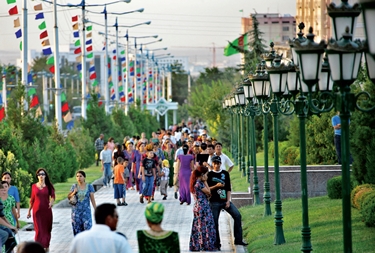
The population of Central Asia is currently in excess of 80.8 million. There has been an average growth of one million during the past ten years.
The experts estimate that by 2050, the population of Central Asia would exceed 100 million.
Central Asia – Population
| Country | Population (million) | Per square km density | Average age | Literacy rate |
| Uzbekistan | 36.7 | 82 | 27.23 | 100% |
| Kazakhstan | 20 | 7.3 | 31.8 | 99.80% |
| Tajikistan | 10 | 72.3 | 21.8 | 99.80% |
| Kyrgyzstan | 7.1 | 34.6 | 23.9 | 99.60% |
| Turkmenistan | 7 | 12.9 | 26.3 | 99.90% |
| Central Asia | 80.8 (total) | 41.82 (mean) | 26.2 (mean) |
© nCa Research
The region is predominantly young and the literacy rate is nearly 100%.
Assuming that Digital Literacy is the ability to access, manage, understand, integrate, communicate, evaluate and create information safely and appropriately through digital technologies for work or entertainment, the Digital Literacy in Central Asia in the population segment below 35 is almost 100%. — This statement is based on our interactions across the region.
It should be noted that our definition of Digital Literacy encompasses the related skills such as computer literacy, ICT literacy, information literacy and media literacy.
With a population that is young, educated, and comfortable with technology, Central Asia is an ideal region for investments, outsourcing, e-commerce clustering, and logistics hubs. /// nCa, 9 April 2024